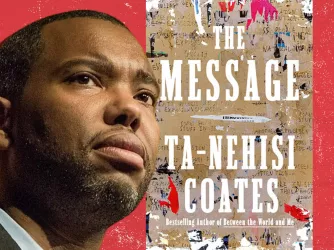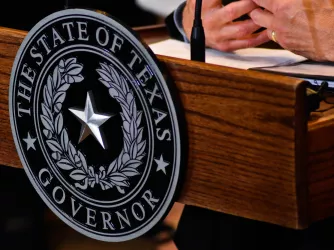Table of Contents
STAFF EDITORIAL: Mind the Gap
As a newspaper The Communicator has an obligation to report the whole story. The Communicator has decided to print the 12 cartoons based on the fact that they are newsworthy and the public deserves the entire story behind the world-wide violence.
We have no malicious intent.
Our intent is to inform the public.
As journalists—aspiring college students or not—it is our duty to inform our readers. By showing the cartoons, we believe it will stir conversation on campus and in the community.
Less than a handful of national newspapers have printed one, a few, or all of the 12 cartoons that depict a satirical viewpoint of the prophet, the Islamic religion and even extremist terrorism.
Their reasoning has ranged from not wanting to disrespect the religion to fear of reprisal from angry Muslims.
Leonard Downie Jr, executive editor of The Washington Post, said, “They wouldn’t meet our standards for what we publish in the paper. We have standards about language, religious sensitivity, racial sensitivity and general good taste.”
The Los Angeles Times said in a statement, “Our newsroom and opinion page editors, independently of each other, determined that the caricatures could be deemed offensive to some readers and there were effective ways to cover the controversy without running the images themselves.”
The First Amendment to the Constitution of the United States guarantees us a right to free speech. Regardless whether that speech is deemed appropriate or offensive, we have a right to say it.
The Communicator is baffled at the lack of national newspapers printing the cartoons and has elected to run them.
We do this not simply for the sake of doing it, but rather to serve the public interest by providing primary sources in a debate where they have been conspicuously lacking.
How is it OK, in this post-9/11 world in which curiosity about the Islamic religion has become understandably widespread, for national media not to pay closer attention to the crux of the issue?
For them to run footage of angry Muslims protesting in the street, burning flags and holding up threatening signs, but not to show the cause of these acts?
Sadly, many citizens—in the United States and abroad—are misinformed or under-informed about debates within Islam. Stereotypes are rampant, and hate crimes have become more common since 9/11. The footage of the rioting Muslims only further confuse the public about religious ideology because the media have not fully reported this issue: they have not shown what caused it.
It should be noted that Jyllands-Posten ran these cartoons as a satirical piece about staff writer Kåre Bluitgen’s plight in finding illustrators for his children’s book about the Prophet Muhammad. Illustrators turned him down for fear of Muslim reprisal because depicting Muhammad—in any manner—is considered idolatrous and sacrilegious, according to Islam’s holy book, the Quran.
The Communicator reminds readers we are not taking a side on this issue, only that U.S. media should take a more comprehensive approach when reporting on it.
These cartoons are being published with the same consideration that any controversial image would bring about in The Communicator.
View the drawings of the 12 cartoons and inform yourself.
We hope your interest will be piqued enough to come to a conclusion on your own and fill in the gaps between what mainstream media presents and what the whole story is.
Recent Articles
FIRE’s award-winning Newsdesk covers the free speech news you need to stay informed.

Right, left, and in-between: Can we bring our differences to the table?
We may sit on different sides of the table, but we can still meet in the middle by practicing free speech.

How to survive Thanksgiving
FIRE Let’s Talk group discussion materials hold the key to mutual understanding and civil dialogue at your holiday supper this year.

Ta-Nehisi Coates sees free speech as antidote to crisis of liberalism
Amidst nearly a decade of culture wars and protests over the foundations of American civil society, Coates explains why history has never been more contentious and calls on writers to “save the world.”

Gov. Greg Abbott’s order ‘hardening state government’ against China is dangerously hard to parse
Gov. Abbott issued an executive order that would limit the professional travel of academics at state universities — and surveil their private travel to "foreign adversaries."